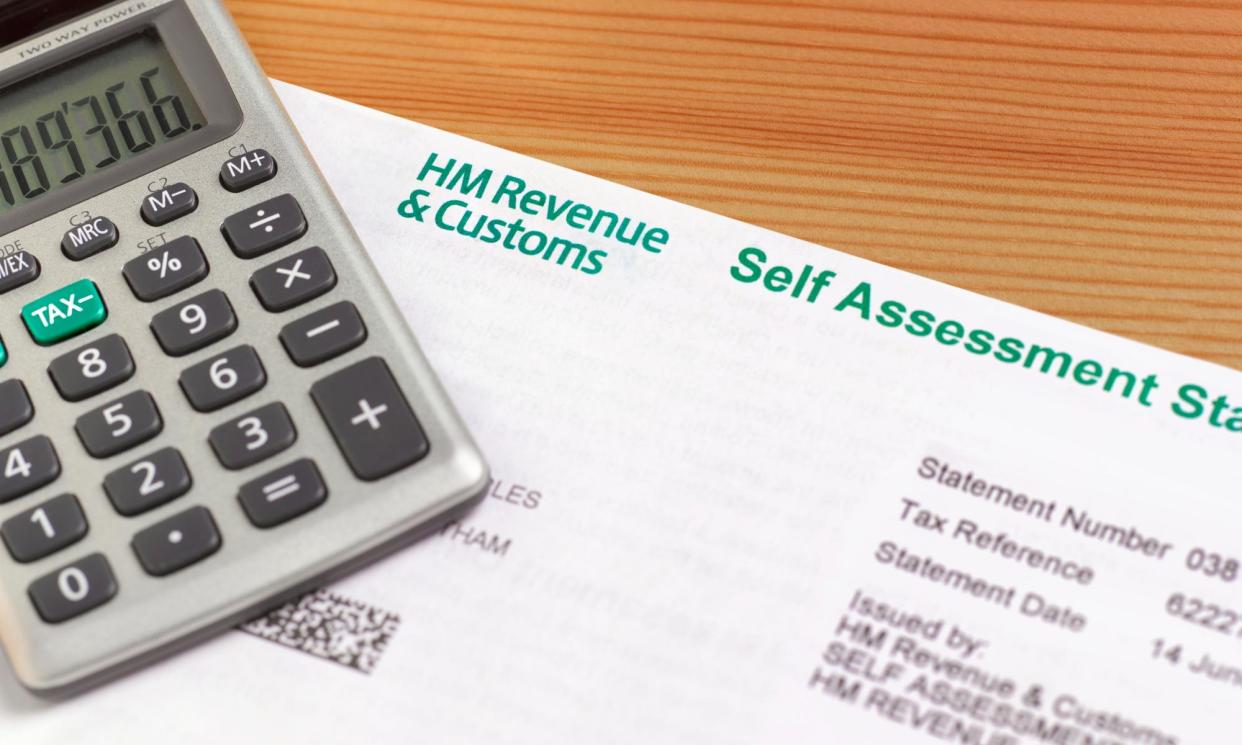HMRC to close its self-assessment helpline for six months a year

HM Revenue and Customs has caused an outcry after announcing it will close a key helpline for six months a year and scale back other phone lines – weeks after it was criticised for its poor customer service.
One senior MP said the tax office, which has been struggling to cope with demand, leaving users regularly facing long call-waiting times, had now chosen “to essentially close down any avenues for people to contact them over the phone” for sizeable chunks of the year.
HMRC said that starting from this year, its taxpayer helpline for those who have to submit a self-assessment tax form would be shut from early April until 30 September. During the rest of the year, the helpline would deal with “priority queries” only.
In addition, from April, the VAT helpline will open for just five days each month, while the pay as you earn (PAYE) helpline will no longer deal with calls to chase PAYE refunds.
However, HMRC said its advisers would continue to always be available during normal office opening hours to help those who could not use online services or who had health issues or personal circumstances that meant they needed extra support.
The tax office has been trying to wean people off speaking to a real person on the phone in favour of going online to find information and carry out tasks wherever possible. Its online resources include written guidance, recorded webinars, YouTube videos and chatbots.
HMRC said the move to “online self-service” for self-assessment and VAT was “a vital element” of its modernisation of the tax system.
However, the announcement of major cuts – which take effect from 8 April – prompted anger and dismay among some tax experts, who pointed out that just last month, parliament’s spending watchdog said customer service levels at HMRC had sunk to an “all-time low”.
In 2022-23, 62% of callers waited more than 10 minutes to speak to an adviser, which was up from 46% the previous year, a report by the cross-party public accounts committee found.
It also emerged last month that MPs, some civil servants and other high-profile figures were having their calls to HMRC answered up to 12 times faster than the general public because they were able to access a “VIP” hotline called “Public Department 1”.
The taxpayer population has been increasing, partly as a result of the freezing of personal income tax thresholds until 2028, while many people’s financial affairs have become more complex. This year, more than 12 million people had to submit a self-assessment tax form – up from just over 10 million a decade ago.
Responding to the announcement, Harriett Baldwin, a Conservative MP and chair of the Commons Treasury select committee, said: “It is a great shame that HMRC have decided now is the time to essentially close down any avenues for people to contact them over the phone for huge parts of the year … These are well-meaning people just trying to get their taxes right.”
She added that HMRC had not yet demonstrated that the department or the public were ready to make such a big switch to online. “This should not be forced upon taxpayers until there is evidence that people know how to do their taxes on HMRC’s incredibly complex website.”
The Chartered Institute of Taxation called the decision “misguided”. Its president, Gary Ashford, said: “We are deeply dismayed that, so soon after the criticisms levelled at them by the public accounts committee, and in the light of an inconclusive evaluation, HMRC have decided to make these big, permanent cuts to the help they provide to taxpayers.”
Dawn Register, head of tax dispute resolution at the accountancy firm BDO, said the decision to close helpline services for parts of the year “could make tax compliance harder”.
“The tax system is complicated, people’s financial affairs are complicated, and there are times when taxpayers simply need to speak to a human being to find out the answers to their questions,” she said.
However, HMRC said the changes would allow its staff to focus support where it was most needed: helping those with complex tax queries and those who were vulnerable and needed extra assistance. It added that the department needed to “maximise every pound of taxpayers’ money”.

 Yahoo News
Yahoo News 
